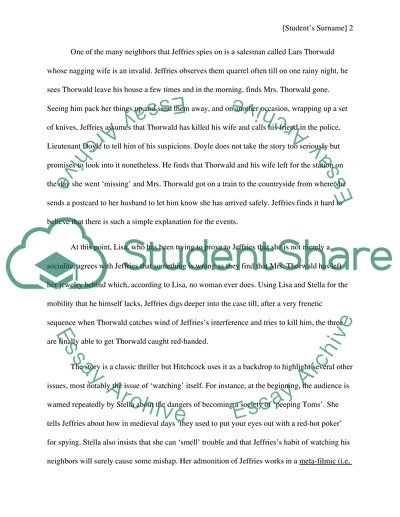Cite this document
(“Rear Window: Watching as Dangerous Activity Essay”, n.d.)
Rear Window: Watching as Dangerous Activity Essay. Retrieved from https://studentshare.org/visual-arts-film-studies/1462754-essay
Rear Window: Watching as Dangerous Activity Essay. Retrieved from https://studentshare.org/visual-arts-film-studies/1462754-essay
(Rear Window: Watching As Dangerous Activity Essay)
Rear Window: Watching As Dangerous Activity Essay. https://studentshare.org/visual-arts-film-studies/1462754-essay.
Rear Window: Watching As Dangerous Activity Essay. https://studentshare.org/visual-arts-film-studies/1462754-essay.
“Rear Window: Watching As Dangerous Activity Essay”, n.d. https://studentshare.org/visual-arts-film-studies/1462754-essay.


